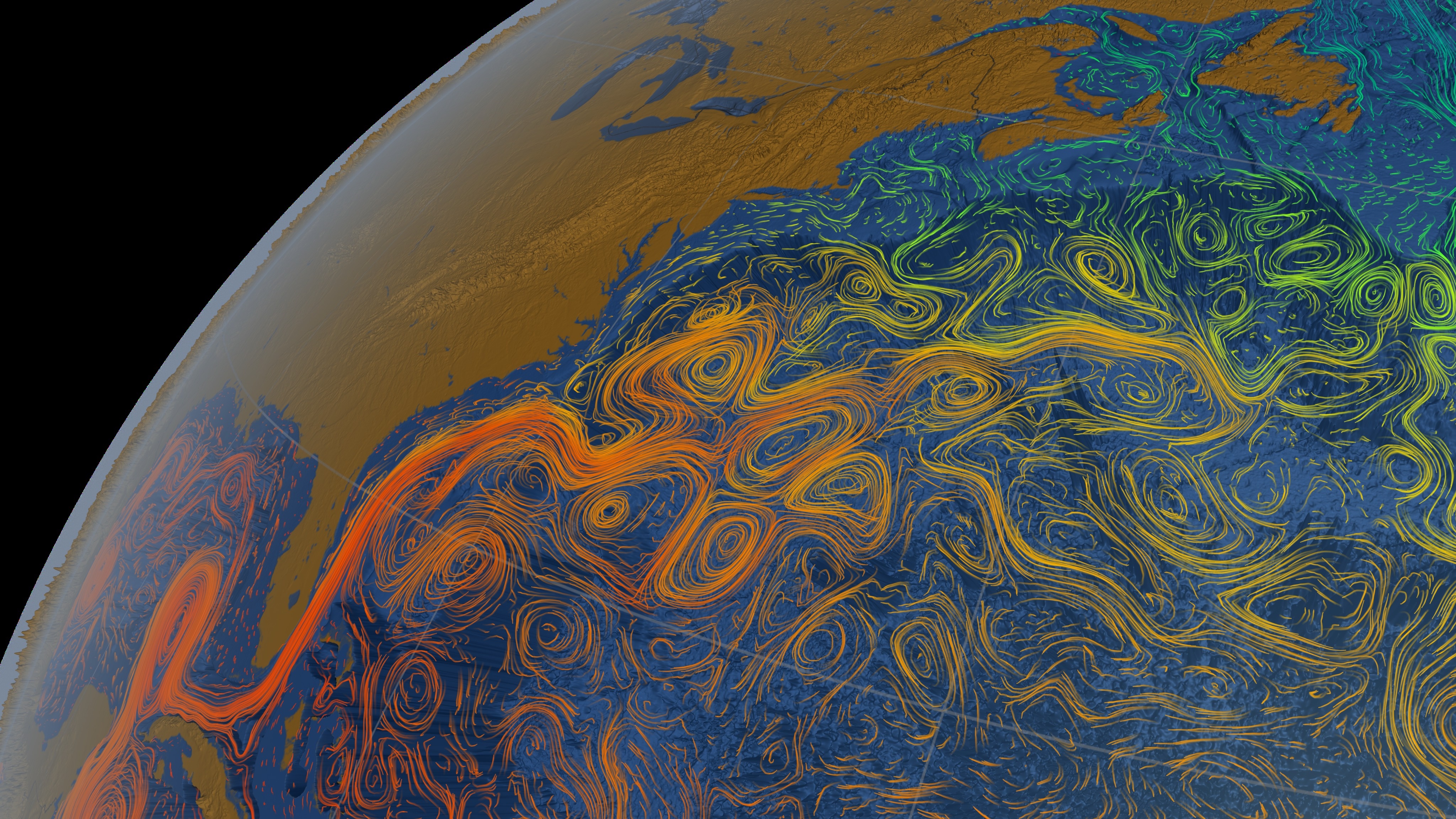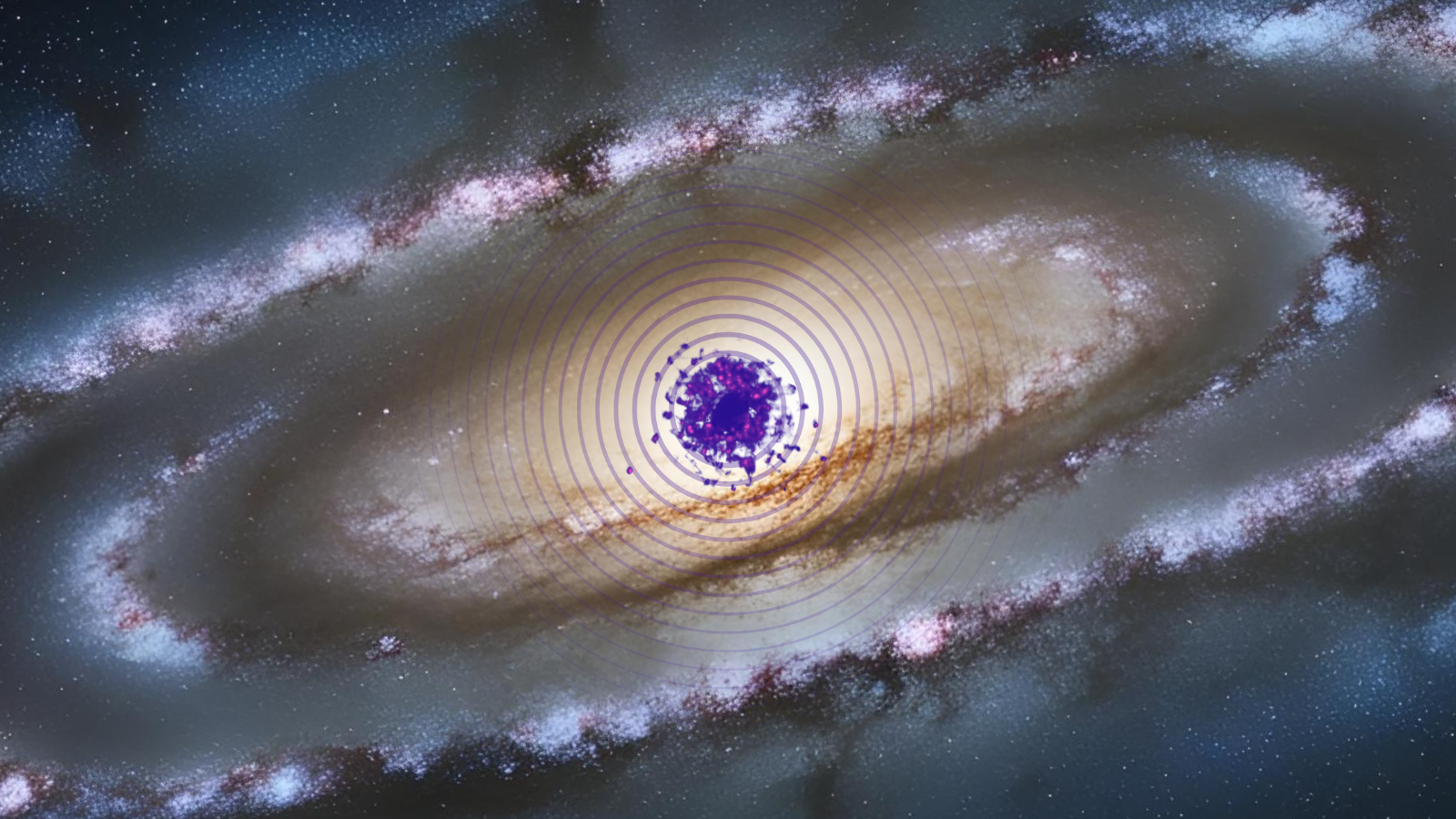Ocean current system could shut down as early as 2025, leading to climate disaster
The Atlantic Meridional Overturning Circulation has been weakening – and new predictions suggest it could totally switch off between 2025 and 2095.

A major system of ocean currents that ferries heat from the tropics to the North Atlantic could shut down far sooner than expected, according to new predictions. Such a collapse would prove catastrophic for Earth's climate.
The system, known as the Atlantic Meridional Overturning Circulation (AMOC) had previously been measured to be dramatically weakening in conjunction with rising ocean temperatures. Despite this, however, the Intergovernmental Panel on Climate Change (IPCC) recently announced that climate scientists don't expect the AMOC to totally switch off within the century.
But a new study is now challenging that conclusion, raising the specter of a halted AMOC to as early as 2025.
"Shutting down the AMOC can have very serious consequences for Earth’s climate, for example, by changing how heat and precipitation are distributed globally," study leader Peter Ditlevsen, from the Niels Bohr Institute at the University of Copenhagen, said in a statement.
Related: Climate change may be changing the color of Earth's oceans
Finding that direct measurements of the AMOC's strength have only been made for the past 15 years, Ditlevsen's team applied sophisticated statistical tools to ocean temperature data going all the way back to the 1870s for an enhanced dataset. This detailed analysis ultimately suggested significant warning signs of the AMOC shutting down between 2025 and 2095, with a staggering certainty of 95%. More specifically, the team's results evidenced that the most likely time for this collapse would be around 2057.
Still, other climate scientists remain cautious, saying that there are still uncertainties in the data that could affect its accuracy. However, it's worth considering that even the mere possibility of the AMOC shutting down so soon is rather alarming.
Breaking space news, the latest updates on rocket launches, skywatching events and more!
The AMOC, which includes the Gulf Stream as part of its system, is our planet's main mode of transporting heat away from the tropics. Without it, the tropics would rapidly increase in temperature while vital tropical rains get disrupted. Such rains are essential for the environments of South America, western Africa as well as in India and other regions of south Asia.
Meanwhile, northern and western Europe would lose their source of warm water from the tropics, leading to more storms and severely cold winters in these areas. The loss of the Gulf Stream in particular would also result in rising sea levels on the US’ eastern seaboard.
"Our result underscores the importance of reducing global greenhouse gas emissions as soon as possible," Ditlevsen said.
In recent years, we’ve already seen the dangers of human-induced climate warming play out as heatwaves grip much of the northern hemisphere. And although the loss of the AMOC may see northern and western Europe cool, “this shutdown will contribute to an increased warming of the tropics," Ditlevsen said, "where rising temperatures have already given rise to challenging living conditions."
The findings were published on Tuesday (July 25) in the journal Nature Communications.

Keith Cooper is a freelance science journalist and editor in the United Kingdom, and has a degree in physics and astrophysics from the University of Manchester. He's the author of "The Contact Paradox: Challenging Our Assumptions in the Search for Extraterrestrial Intelligence" (Bloomsbury Sigma, 2020) and has written articles on astronomy, space, physics and astrobiology for a multitude of magazines and websites.
